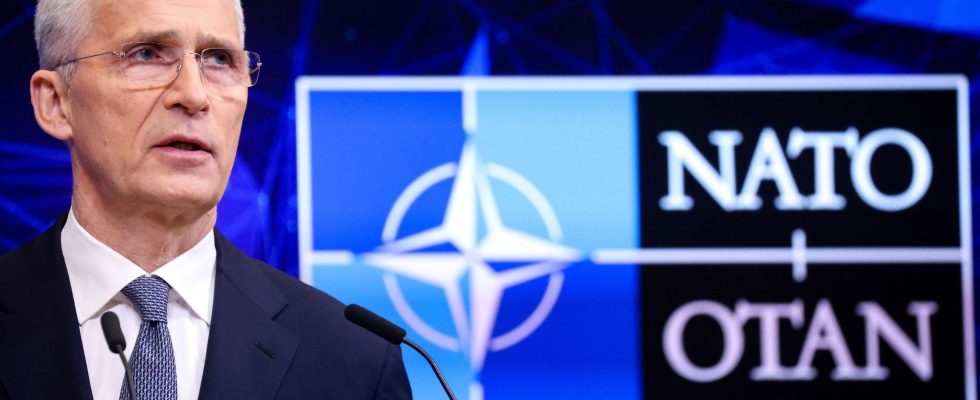Will Sweden join NATO? 24 hours before the opening of the Alliance’s annual summit, which will be held in Vilnius, Lithuania, Turkey is keeping the suspense going. “First pave the way for Turkey to join the European Union, and then we will pave the way for Sweden,” Turkish President Recep Tayyip Erdogan said on Monday July 10.
Ankara’s blackmail has been going on since May 2022. She refuses Sweden to join the politico-military organization, and she is not the only one. Hungary has not ratified the accession either. Unfortunately for Stockholm, the unanimity of the 31 member states is required for a new nation to be included in NATO.
The opportunity for Erdogan to try to put pressure on the European Commission. She had estimated at the end of 2020 that Turkey’s chances of membership were “at a standstill” because of its decisions contrary to the interests of the European Union. Ankara submitted its candidacy in 1987, but the negotiations started in 2005 were plagued by a series of problems.
Ankara calls for extraditions
For its part, the Swedish government has embarked on an operation of seduction. Prime Minister Ulf Kristersson met with President Erdogan on Monday. This interview was organized by the head of NATO, Jens Stoltenberg, who had judged “absolutely possible” that Turkey changes its mind. Ankara then promised to take “the best decision, whatever it is”.
Because to the list of Erdogan’s demands is added the thorny Kurdish question. Turkey accuses Sweden of being too lenient with Kurdish refugees, whom it considers terrorists. “Sweden has made concessions, but Erdogan wants a lot more,” told L’Express Amélie Zima, researcher at the Institute for Strategic Research at the Military School (IRSEM) and NATO specialist. Stockholm began by reforming its Constitution and adopting a new anti-terrorism law. She also sentenced last week a Turk of Kurdish origin to four and a half years in prison for “extortion” and “attempted terrorist financing” for the benefit of the Kurdistan Workers’ Party (PKK), a first for the Scandinavian country.
“But what Erdogan really wants is the extradition of ten people,” explains Amélie Zima. These are considered to be close to the PKK or to the preacher Fethullah Gülen, accused by Erdogan of having fomented the 2016 coup. would be totally contrary to fundamental freedoms and the rule of law”, continues the NATO specialist. For its part, Turkey is growing impatient. “How can a state that does not distance itself from terrorist organizations contribute to NATO?” asked Erdogan.
The F-16, a means of pressure?
Some analysts believe that the Turkish head of state is mainly hoping for a delivery of American F-16 fighter planes. For now, Ankara denies. “Weapons can indeed be a means of pressure on Turkey”, confirms Amélie Zima. It had already been excluded in 2019 from the F-35 aircraft program for having purchased Russian missiles, deemed incompatible with NATO devices. Turkish authorities announced that Erdogan and US President Joe Biden had spoken on the phone about the F-16s and Sweden’s membership.
It remains to be seen whether Turkey allowed itself to be convinced. “It has been a problem within NATO for several years already”, notes Amélie Zima. “The allies consider that it does not sufficiently respect fundamental values and reproach it for its attitude towards the Kurdish militias. For its part, Turkey considers that it lacked support during the 2016 coup.”
However, a reversal cannot be ruled out. In particular on the Hungarian side: “Sweden has held the rotating presidency of the European Union, and it attaches great importance to respect for fundamental freedoms. It is very critical of the Hungarian government, which has potentially wanted to make him pay for it,” says Amélie Zima. Since the rotating presidency has been entrusted to Spain, Hungary could change its mind about Sweden’s membership. With regard to Turkey, the NATO specialist recalls that “in the history of the organization, many decisions were taken once the heads of state met”. The July 11-12 summit may be no exception.
